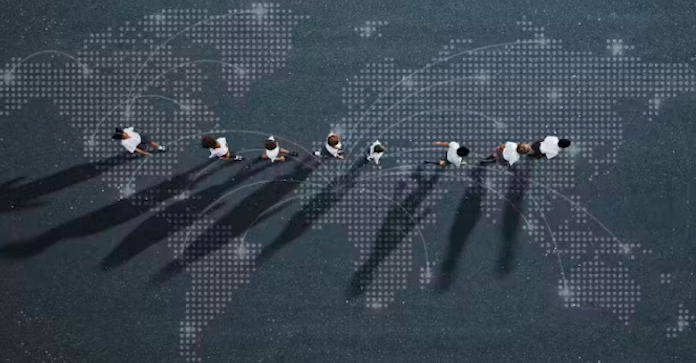Science journalism is about taking complex academic research and turning it into easy-to-read content that is still accurate. Aside from informing readers through evidence-based journalism, it aims to make the wider public curious about scientific research.
This article is an example of science journalism. As a media professor I conducted a study on how social media sites like X (formerly known as Twitter) can help science communication reach new audiences in South Africa. This article is a version of that study written in a way that people other than just academics can understand.
In my study I analysed the X feeds of three South African science journalism platforms: Bhekisisa, which focuses on health news; SciBraai, which specialises in local science news; and The Conversation Africa, which carries articles written by academics from a range of disciplines that are edited by journalists.
My study’s analysis found that X offers unique advantages for communicating science. It allows interaction. It makes it possible to simplify complex information into easy-to-understand formats. And it supports multiple languages and media. This creates a more dynamic and inclusive way to share scientific knowledge.
I concluded from my findings that social media can significantly enhance the reach and understanding of African science journalism.
The challenges
Media scholars have highlighted a crucial problem in the global south. The dominance of English in science communication leads to a neglect of vital issues because it excludes the majority of the population. In South Africa, for example, only 9% of people speak English as a first language. Studies illustrate how this leaves audiences feeling there’s a lack of relevant science content available.
Added to this is the enduring legacy of colonialism that reinforces the idea of science as an exclusive activity for a select few. These historical undercurrents shape science communicators’ challenges.
Effective science journalism is made more complex by the need to frame scientific developments in ways that are culturally relevant to African readers. Added to this is a historical reliance on foreign sources in science news content that’s published in the global south. This undermines the development of work tailored to African contexts.
There’s no shortage of obstacles. Limited funding for science journalism and a lack of access to digital technologies in many parts of Africa pose the final hurdles to spreading reliable scientific information.
This is where social media comes in.
The study
My study shows that in South Africa X offers a glimmer of transformation for science communication.
I chose to investigate its advantages in a real-world setting by analysing three science journalism outlets. The three platforms I chose go beyond traditional science journalism by choosing to focus on research that is relevant to African audiences. This fills a critical gap, as science news most often has a western bias.
The Conversation Africa is part of a global network of not-for-profit outlets where academics collaborate with journalists and editors to make research accessible. Content is available for any other platform to freely republish, extending its reach, as is the case with SciBraai.
Bhekisisa is an award-winning health journalism centre focused on solutions-based reporting. It combines journalistic expertise with updates on medical research and it uses multimedia formats.
SciBraai specialises in local science news and scientists. It uses a multilingual approach (the English, isiZulu and Afrikaans languages) to enhance its reach
They also focus strongly on social media. And their orientation towards using clear language and visuals, as well as incorporating a multilingual approach, is an effective way of making knowledge accessible.
For example, Bhekisisa creates graphics and multimedia formats to explain complex medical developments. These visuals act as entry points into complex topics for a diverse audience.
For its part, SciBraai is challenging the dominance of English in science communication. It incorporates isiZulu, the most widely spoken language in South Africa, into its feed on X.
The outlets align with research that defines good science journalism. This is journalism that tries to keep the public informed about science, helps explain the implications of scientific research and supports related decision-making in a society.
Some argue that science journalism in the global south suffers from a lack of resources and a neglect of local scientific inquiry. But the practices I observed in these three outlets offer a more nuanced perspective.
It’s important to note that I wasn’t measuring how popular or successful the X accounts of these outlets are. I was interested in analysing how their use of social media aligns with the fundamental goals of science communication.
To do this I downloaded all tweets from the three feeds and obtained all tweets that mention the accounts. The posts were analysed using content analysis, a research method that identifies trends and patterns in communications.
The pitfalls
My study highlights that X is not merely a broadcast tool for science journalism but can be a platform to cultivate dialogue. The ability of science communicators to respond to questions, address misconceptions and incorporate feedback from the public strengthens the trust between the scientific community and broader society. This empowers audiences to become active participants rather than passive recipients of information.
While these findings are encouraging, challenges remain in how the potential for direct audience engagement is only sometimes fully realised.
And social media comes with its own pitfalls. The spread of misinformation threatens the effectiveness of science communication efforts on X. Social media cannot replace robust investment in science journalism training, infrastructure, and widening access to technology throughout Africa.
X presents a tool for reaching audiences, not a solution. When wielded strategically, it can empower science communicators to diversify and deepen their impact.![]()
Sisanda Nkoala, Associate professor, University of the Western Cape
This article is republished from The Conversation under a Creative Commons license. Read the original article.













